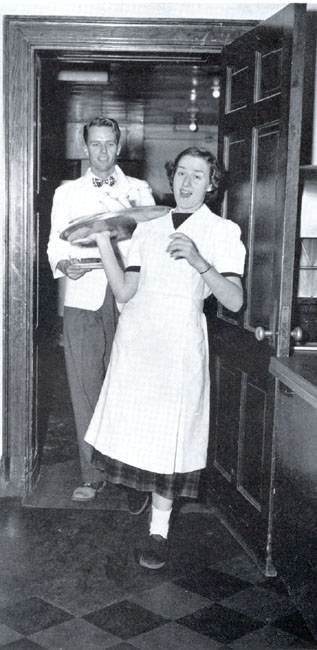

1946 - 1950
| 1946 |
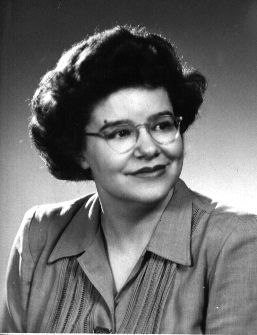 |
With a doctorate in Biology from Duke University, Hulda Magalhaes joins the faculty at Bucknell. She is hired to teach a course on personal hygiene. Dr. Maghalhaes will go on to teach courses in zoology and is known for her definitive research with hamsters. She publishes The Golden Hamster in 1947. Kalp |
| 1946 | 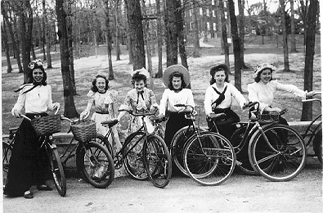 |
-- Gay Nineties Bicycle Race -- Bucknell University coeds revive the old-time bicycle race as feature of the college's Centennial Spring Festival. In gay collegiate garb, left to right: Shirley Winning, Ruth Irland, Nida Poteat, Grace Deissler, Joy Silver, Dorothy Kerritt. Bucknell University Archives |
| 1946 |
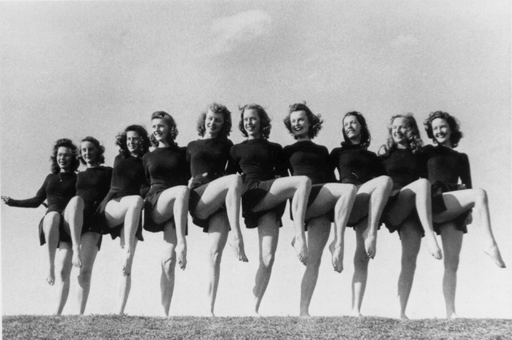 |
May Day Festival |
| 1946 |
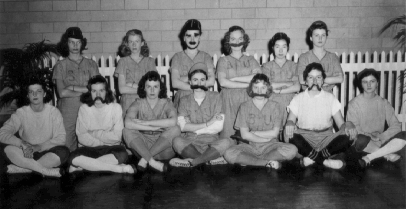 |
May Day Festival |
| 1947 |
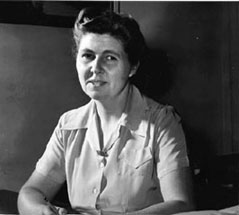 |
Florence Pyle is hired as secretary for Dayton Ranck,
Treasurer of the University. In 1949, Miss. Pyle becomes Recorder
replacing Mary Hunt who has had the position for nearly 40 years. When
Mary Kunkle dies in 1958, Florence was asked to take over her
responsibilities as Assistant Registrar. "Dr. Mark Ebersole assured
me that if I took on that job when Mr. Faint retired, they would not
bring on another man for that position. They would promote me." In 1967,
Miss Pyle was named Registrar; becoming the first woman to hold that
position. She would remain in that capacity until she retired in 1977.
WRC Interview, 8/96, University Archives |
| 1947 |
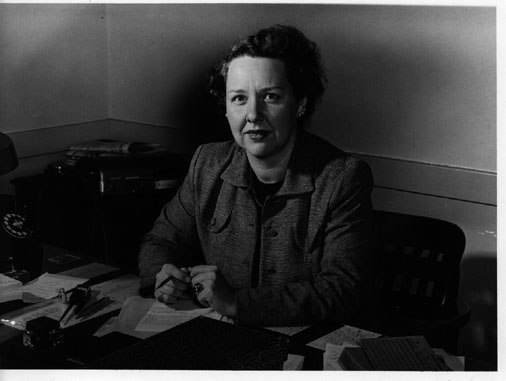 |
Mary Jane Stevenson is named Dean of Women at Bucknell University. She oversees the women's student government, housing, and social activities for co-eds on campus. Many alumnae remark on the valuable lessons and memorable dinners, and parties Miss Stevenson provided. She is involved beyond the campus as president of the local branch of the Association of American University Women from 1952-1955 and president of the Pennsylvania Association for Women Deans, Administrators, and Counselors from 1960-1962. Kalp |
| 1947 |
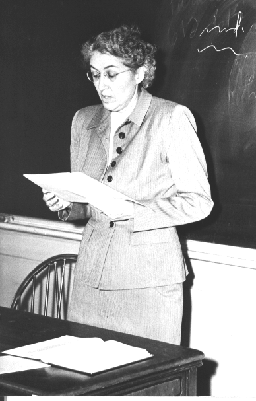 |
Recollection Jack Wheatcroft, Professor of English Emeritus, recalls he came to Bucknell as an undergraduate from Temple University after serving in World War II, to take a seminar on English and American literature with Mildred Martin. It was a two semester course for 10 to 12 upperclass students selected by Miss Martin, and it featured the chief works of 12 centuries of English prose, poetry, and drama. Students referred to the course of "The Seminar" and Jack was dismayed to learn upon his arrival that the course was full. Miss Martin made an exception and allowed him to enroll. Wheatcroft said, "Well, she really had the effect of directing my life in many ways. And everything hung on that one precarious moment. The course was, I think, everything and more that I wanted or imagined it would be. And I'm certainly not the only one that would give such a testimonial to that. She's had some very, very distinguished students who would subscribe to every word that I'm saying." WRC Interview, 4/96; Bucknell World, September-October 1981 |
| 1947 |
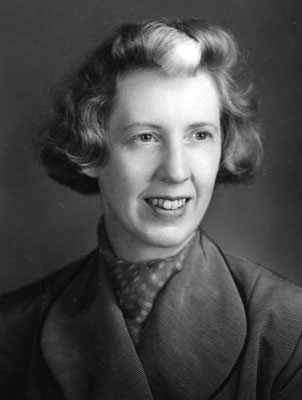 |
Dorothy Wilson is hired as a piano instructor. In 1952 she achieves status of Assistant Professor of Music and in 1958 becomes Associate Professor of Music. A prolific composer for piano and strings, Dorothy receives numerous awards from the Pennsylvania Federation of Music Clubs. Perhaps her greatest contribution to the music department is in 1966. With the help of two former national officers living in the area, Dorothy organizes an alumnae chapter of the music sorority, Mu Phi Epsilon. The alumnae chapter is instrumental in bringing award-winning performers to Bucknell in the years to follow. In 1979 the music sorority becomes coed at the national level, one year after Dorothy's retirement. WRC Interview & Public Relations |
| 1947 |
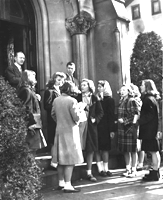 |
Students continue to be required to attend chapel services as outlined in this description: Bucknell University was founded by men and women whose labors were the expression of faith and religious conviction. They sought to base learning upon the enlightened and humane principles of the Christian religion. They set no bars on exclusion nor obstruction of sect or creed against the student who chose to enter this college. They believed that a college could flourish and intelligence ripen only under the will of God. Adherence to these principles places upon Bucknell University the obligation and the concern that the knowledge and skills acquired in the process of education shall be used for the commonweal and for the enhancement of human values for all people. To this end the University directs a varied program of religious activities, both curricular and extra-curricular. In addition to the Department of Religion, the University maintains or fosters several major religious activities. Chapel is held at 11:00 A. M. in the Beaver Memorial Methodist Church each Wednesday that the University is in session. Freshman, sophomores, and juniors are required to attend half of the total number of chapel services held. Emphasis is laid upon worship, inspirational addresses, and special programs of music. The University Chapel is under the direction of the president and the Committee on Religious Program. Bucknell University Catalogue 1947-48 Early in the University's history, chapel services for students were held in Bucknell Hall. When the student body grew, chapel service was moved first to the Baptist and then to the Methodist church downtown. Eventually, because of their numbers, the students attended chapel in the gym until Rooke Chapel was completed in 1964. |
| 1949 |
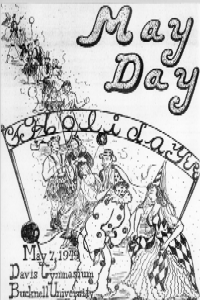 |
32nd Annual May Day Produced By Part One LADIES OF THE QUEEN'S COURT FLOWER GIRLS TRAIN BEARERS |
| 1949 |
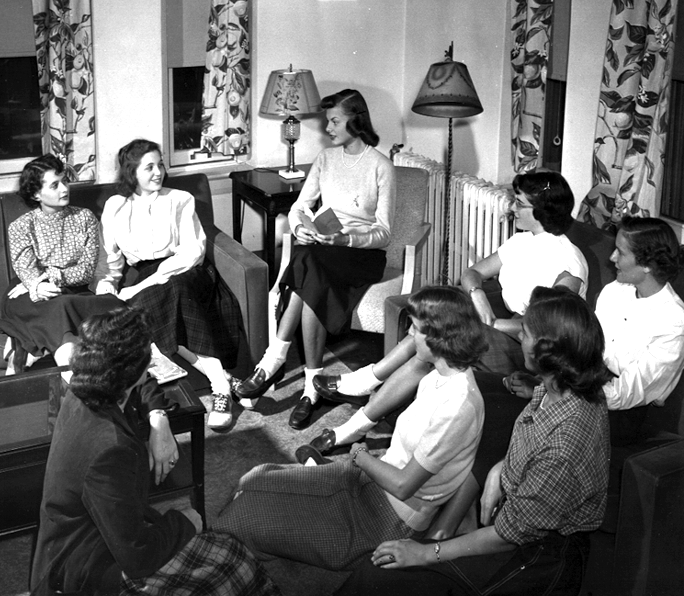 |
Freshman counseling group in women's dorm. Bucknell University Archives 1949 |
| 1949 |
Recollection Professor of English Emeritus Jack Wheatcroft remembers a different atmosphere for women when he first began teaching here in the late forties and fifties. Women were under severe Victorian restrictions when I first came here. Freshmen women had to be back in their rooms at 7 o'clock in the evening. Upperclass women had to be back in by 11 o'clock. Women were given so many late minutes, and if they had exceeded the number of late minutes, they had restrictions placed on them. I can remember watching a comic scene. Women were permitted to go to the library to study until the library closed. It closed at 10 o'clock in those days. But then, a woman had to walk directly to the dormitory, and she had to keep moving. A young man would be walking with her, and she'd be walking at the rate of, maybe, a mile every two hours taking the tiniest steps she possibly could. And this, of course, this is technical morality rather than any kind of genuine ethical system. But as long as she kept shuffling those feet and walked on a straight line to her dormitory, she was within the rules. . .On the other hand, men had no restrictions on them whatever. That seemed to be discriminatory in the worst kind of way. WRC Interview 4/96 |
|
| 1950 |
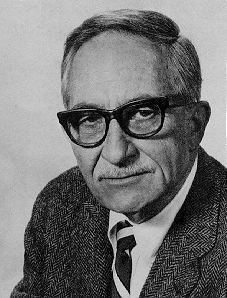 |
Recollection Not everyone had a positive outlook on the Women's Student Government. C. Willard Smith remembered one such man: "What should an instructor have done when in the so-called apathetic 50's a class discussion of Antony and Cleopatra turned into an emotional flurry? Two very proper ladies, undoubtedly members of the W.S.G.A. (Women's Student Government Assn.), virtuously condemned the heroine for her deviant (that was the word then current) behavior. Their adversary, a dashing young man . . . vigorously announced his defense of Cleo and her infinite variety: 'At least she is not dull like the women on this campus; she is a free spirit, something none of you with all your W.S.G.A. regulations, dormitory rules, and maidenly conduct could ever be. What we need around here are more Cleos!'" Bucknell Essays in Recollection, 1977 |
| 1950 |
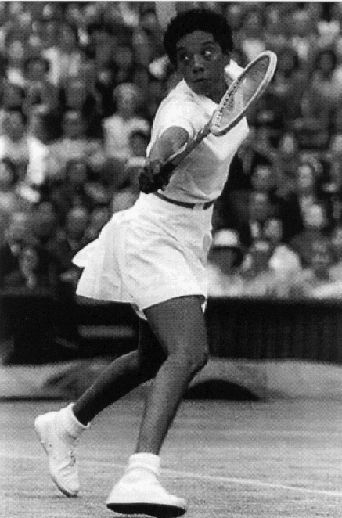 |
Althea Gibson becomes the first African-American tennis player to enter the national grass court championship tournament at Forest Hills, Long Island. She competes the following year at Wimbledon as the first black player ever invited. In 1957, she wins the women singles and double title at Wimbledon and is welcomed in New York City with a ticker tape reception. Her Heritage |
| 1950 |
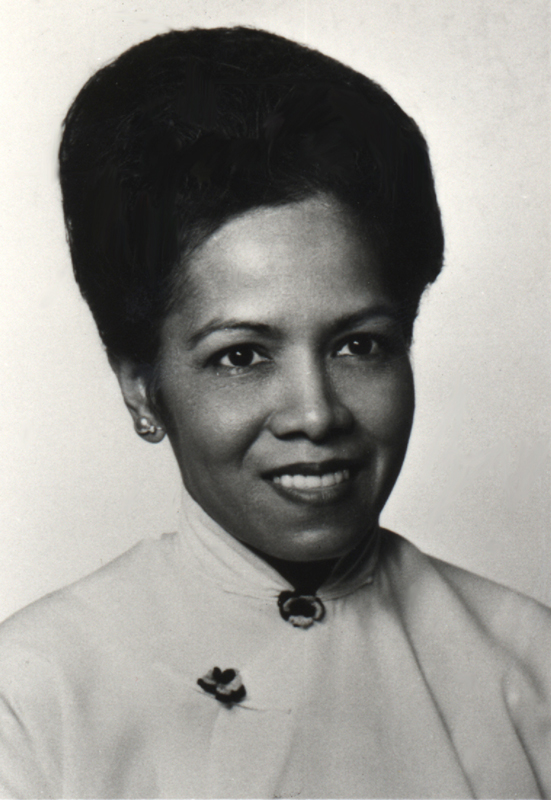 |
Khin Khin "Irene" Myint became the first post-World War II Burmese student to do graduate work at Bucknell. She came to the United States on a Fulbright Scholarship, and received the Bucknell Scholarship for her first year in America. In the first week of February 1950, the Burmese student left Rangoon on her first air flight, a trans-Atlantic flight nevertheless. She was assigned to a room on the 4th floor of Hunt Hall. Receiving a warm welcome from girls there, Khin Khin quickly adjusted to college life. A major differene was that at Rangoon University, they had a fenced-in women's dormitory, whose gates closed at 6 o'clock. Hunt Hall had evening hours, but no locked gate. Although Khin Khin came to study history at Bucknell, she had already witnessed history in the making in her native land. She witnessed the transfor of power from British Government to the Burmese AFPFL Party on January 4th. With her family, she watched the British Union Jack come down after more than 100 years. It was replaced lby tlhe new Burmese flag at a large park near her home. Another event which almost tore the young nation apart was the Karen Insurrection of 1949 against the new Burmese government. Rangoon University was closed down just as Khin Khin was preparing for her final exams related to her History Honors Degree. Many Burmese students had to study under very uncertain and dangerous conditions, even after World War II had ended. Keynote Address, 1998 |
| 1950 |
The Bucknell Engineer magazine is established. The first issue includes the quip, "The zipper is the undoing of the modern girl." Most of the ads contained are targeted to male engineers, and the students producing the magazine seem "free to write, draw, derive and compose anything they wanted about the opposite sex, and get away with it for the most part.' Weiss |